Action and impact for a sustainable future is what we stand for at UniSC. We align with and strive to achieve the United Nations Sustainable Development Goals.
Here's a snapshot of our progress.
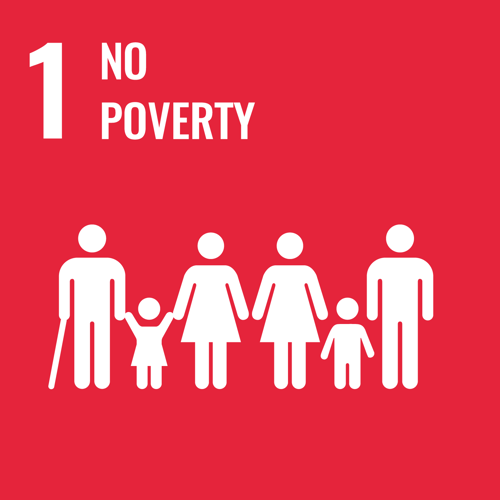
SDG 1: No poverty
Financial assistance
- 1,500+ students supported with over $4.3 million in scholarships, bursaries and prizes (over 90% with equity hardship element)
- 15 regional dedicated scholarships and bursaries to over 120 students
- 20+ years of supporting the community with local startup assistance
Startup assistance
- The Innovation Centre Sunshine Coast, since inception:
- Assists 200+ resident members
- Generates over $60M in economic value
- Creates more than 200 jobs
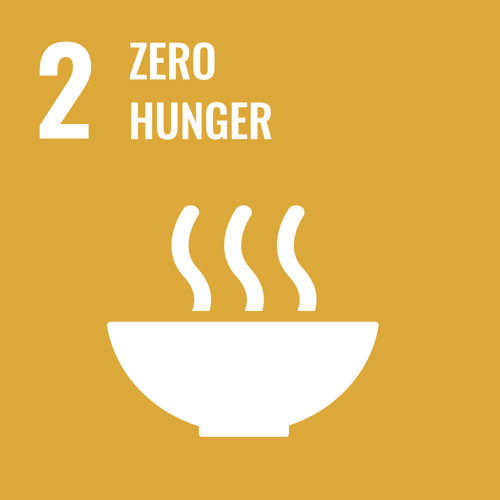
SDG 2: Zero hunger
Student hunger interventions
- 107,000+ food items funded by SSAF
- UniSC Student Guild foodbank provides access to free food for students Monday - Friday, except holidays
Facilities
- 75+ Student and staff kitchens and tea rooms across all UniSC campuses and study sites
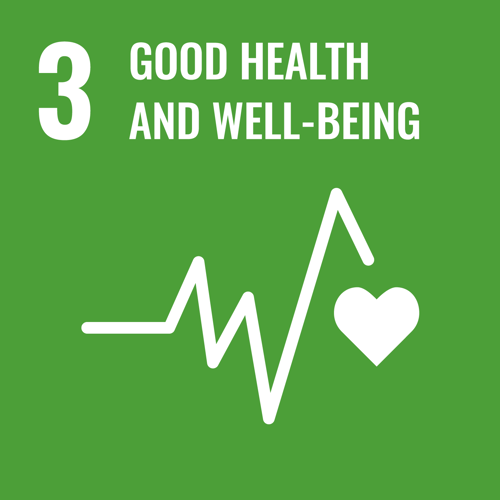
SDG 3: Good health and well-being
Physical and mental health
- UniSC conducts research on physical and mental health through its research and teaching centres:
- Sunshine Coast Health Institute
- Thompson Institute
- Centre for Bioinnovation
- Centre for Human Factors and Sociotechnical Systems
- Clinical Trials Centre
- Australian Centre for Pacific Islands Research
- UniSC is part of the Manna Institute, a virtual mental health institute, focusing on the mental health of Australia's ageing population
- Final year students provide dietary advice through the UniSC Nutrition and Dietetics Clinic, including:
- healthy eating
- pregnancy nutrition
- disease management nutrition
- UniSC staff have access to the Employee Assistance Program, which provides free and confidential counselling services
- UniSC Student Services and Engagement team provides students with information needed to access free sexual and reproductive healthcare services offered by Queensland Health and regional health clinics
- UniSC Student Health and Wellbeing Strategy has been co-designed with students to support their health and wellbeing needs
- UniSC clinical trials were conducted to test:
- New influenza vaccine
- Needle-free COVID 19 vaccination
- Foot-PAD (peripheral artery disease) study
- Dengue fever vaccine
- Cytomegalovirus vaccine
- Antimalarial drug trial
Shared sports facilities
- UniSC Free Social Sports program provides free access to shared sports facilities through a variety of sporting programs for students and staff during semester teaching weeks
- Multi-functional sports stadium that seats 3,000 spectators
- Four outdoor fields for community use and university sporting teams
- Olympic-standard swimming pool, home to the UniSC Spartans
- Home to the national Para Sports Hub
- UniSC Student Guild runs free yoga classes
- UniSC campuses and study sites are smoke-free
Off campus
- Lunchbox Lectures, informative sessions open to the public, included sessions on aged care issues, including:
- Pain management
- Wound care
- Fall prevention,
- Social isolation
- End-of-life and palliative care
- Demetia
- 216 Healthcare providers hosted UniSC students for work integrated learning placements
- UniSC athletes won 15 medals at the 2022 Commonwealth Games, including the para swimming categories
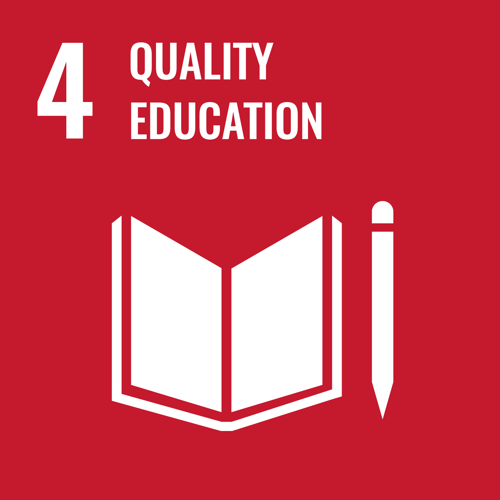
SDG 4: Quality education
Student composition
- More than 3,000 graduates in 2022
- 3.7% students enrolled at UniSC are Aboriginal and/or Torres Strait Islander
- 41.1% students enrolled at UniSC are first in family to attend university
- 13.2% students enrolled at UniSC have a disability
Access assistance
- UniSC provides scholarships across a range of areas including:
- Asylum seeker scholarship
- Aboriginal and Torres Strait Islander scholarships
- New Colombo Plan scholarship
- 1,500+ students supported with more than $4.3m in scholarships, bursaries and prizes
Indigenous Services
- UniSC provides cultural spaces for connecting, meeting, studying and learning are located at multiple study sites:
- UniSC Sunshine Coast Buranga Centre, Dhu Mur'ang
- UniSC Fraser Coast Buallum Jarl-Bah
- UniSC Caboolture Buranga Centre
- UniSC Moreton Bay MB.A
Community learning
- 35+ educational events and courses open to the local community
- Lounge Bar Lectures
- Lunch and Learn
- Short courses on health and ageing, languages including Auslan, education, writing and public speaking
- UniSC runs programs for students during school holiday periods:
- eDiscovery Program for primary school-aged children
- FashCamp for high school students
- Uni Skills for You is a free introductory course for adults looking to refresh their study skills or needing an introduction to university
- UniSC's Life Below Water: Conservation, Current Issues and Possible Solutions, a free online course featuring global leaders in marine and animal research, is offered through FutureLearn
Staff excellence
- UniSC's Senior Lecturer in Outdoor and Environmental Education, Dr Glyn Thomas, was presented with a Citation for Outstanding Contributions to Student Learning for fostering authentic, positive learning experiences in the outdoors.
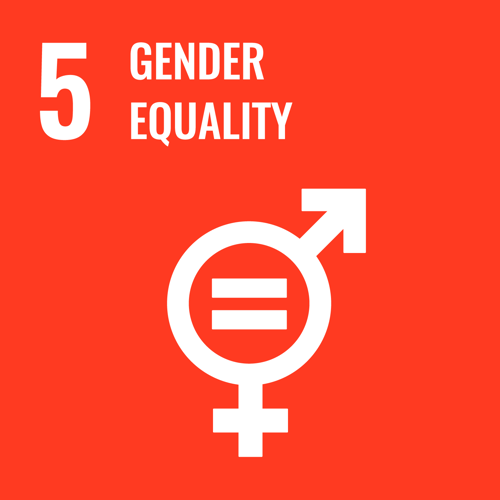
SDG 5: Gender equality
Policies and procedures
- UniSC is committed to creating a safe and inclusive environment for everyone as demonstrated in our policies:
- Supporter of Respect.Now.Always and White Ribbon campaigns
Gender balance of students
- 69% students enrolled are female
- 15+ female-specific scholarships and bursaries awarded to 25 students
- 66% female staff (FTE)
Principles and guidelines
- UniSC gender principles for achieving gender equity at events
- UniSC developed the Designing Inclusive Events guide
- UniSC Diversity Pledge
- Gender affirmation guidelines
Staff advancement
- Five senior female staff members participated in the Women Attaining Leadership program
- Grants up to $10k provided to support an individual's research activity upon return to work following parental leave through the research investment scheme
- Senior Women's Forum launched
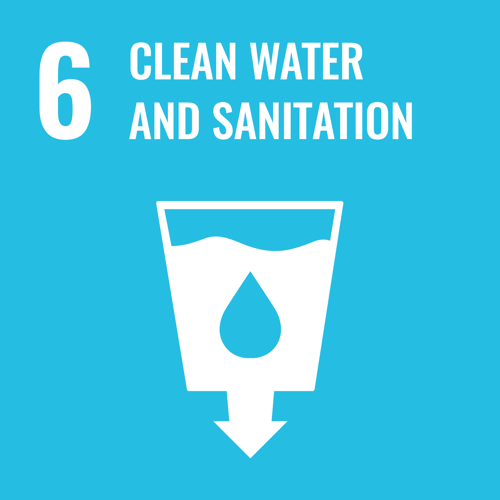
SDG 6: Clean water and sanitation
Recycled water
- 47% water from recycled sources at UniSC Sunshine Coast
- 22% water from recycled sources at UniSC Moreton Bay
- Over 30,000kL recycled rainwater used across UniSC
- UniSC was the first university in Australia to supplement ‘make-up’ water for the 50-metre Olympic swimming pool with treated onsite lake water
Wise water consumption
- All UniSC campuses are Water Refill campuses providing free drinking water refill stations
- The University does not sell any single use plastic water bottles either directly or through its vendors
- Environmentally-friendly and non-toxic e-water cleaning solutions are used in the cleaning regime at UniSC to replace the use of commercial cleaning chemicals
- UniSC Campus Master Plan embeds specific requirements that promote conscious water usage:
- Use drought-tolerant native and endemic plants on campus
- Integrated water management process to capture and treat wastewater, stormwater and rainwater
Engagement
- Sustainability tours are conducted for local businesses, schools and the wider community highlighting sustainability initiatives that promote conscious water usage on campus
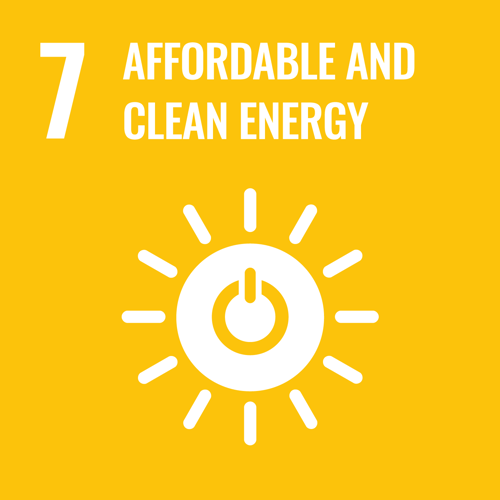
SDG 7: Affordable and clean energy
Renewable energy
- UniSC has approximately 6,500 solar panels that power a “water battery” used to provide air conditioning across the Sunshine Coast campus
- Renewable energy produced on-site supplies 32% of our energy use at UniSC Sunshine Coast
- 2,857,993 kWh solar energy used at UniSC Sunshine Coast
- 2,658 tonnes CO2-e (emissions) avoided through on-site consumption of solar energy
Energy efficiency
- Infrastructure enhancements increase efficiency:
- HVAC plant room improvements
- Expansion of the chilled water infrastructure
- Upgrades of refrigeration equipment
- LED lighting changeovers along roadways and in 7 buildings
- Purchase and use of pool blankets
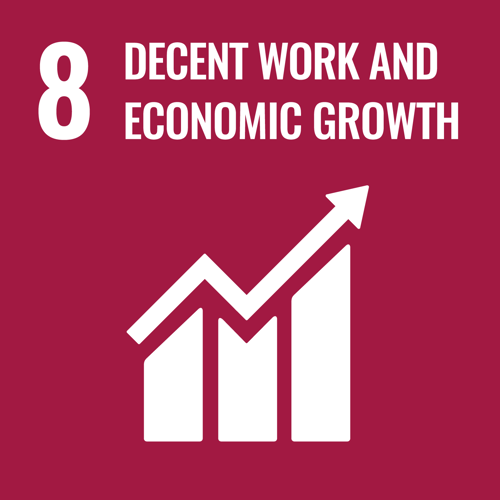
SDG 8: Decent work and economic growth
Policies, agreements and guidelines
- UniSC has an Anti-Discrimination and Freedom from Bullying and Harassment Governing policy
- UniSC has an Enterprise Agreement pursuant to section 172 of the Fair Work Act 2009 and negotiated between the National Tertiary Education Industry Union (NTEU) and the ASU Together branch.
- UniSC has a flexible working arrangement and working from home guidelines
Student opportunities
- UniSC degrees have the opportunity for Work Integrated Learning (internship, placement, practicum and field experience)
- 5,000+ students
- 9,000+ placements
- 900+ partners
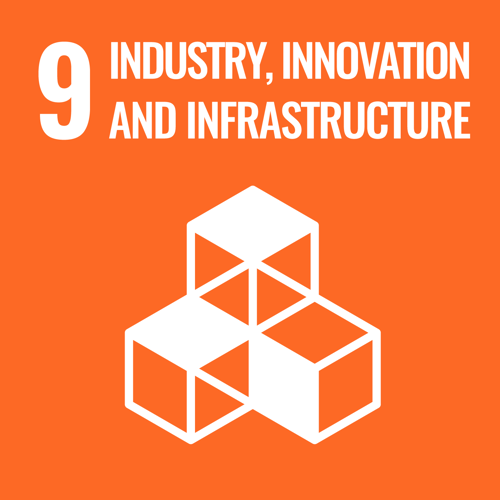
SDG 9: Industry, innovation and infrastructure
Research
- $34.6M in research income
Infrastructure
- Broke ground on 3 new buildings at UniSC Moreton Bay:
- Embodied carbon design
- 1900+ cubic metres of gross- and cross-laminated timber
- Timber regrows in 45 minutes (gross laminated timber) or 6 minutes (cross-laminated timber)
Events
- UniSC Innovation Centre hosted Forward Fest, bringing together 1,500+ innovators, business leaders, government officials and UniSC students and academics to share ideas:
- Commercialising seaweed research
- Suicide prevention
- Social impact measurement
- UniSC co-hosted the Techstars Sustainability Startup Weekend
- Three UniSC students were on the winning team that developed the concept for ASI (website/app) to assess businesses on accessibility, inclusivity and the ability to cater for sensory needs
- UniSC teams won national awards for developing app concepts at GovHack:
- Flood Freight Assist maps freight routes with flood plain information
- Australian Freight Road Planner maps Bureau of Meteorology rainfall data with freight route data
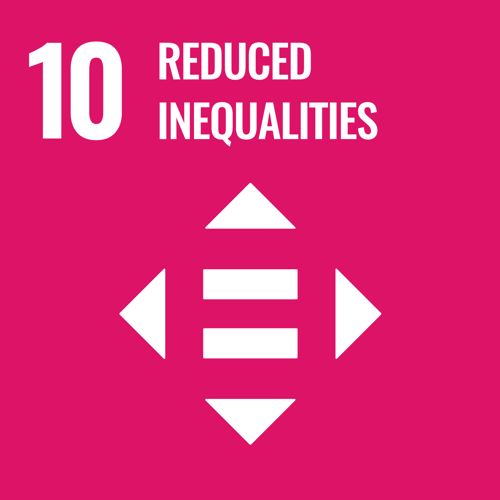
SDG 10: Reduced inequalities
Students
- 41.1% students enrolled at UniSC are first in family to attend university
- 13.2% students enrolled at UniSC have a disability
- 14 Indigenous-specific scholarships and bursaries awarded to 285 students
Policies, charters and plans
- The Admissions, Enrolments and Graduation Academic Policy notes UniSC's commitment to "enabling participation and to fostering fair and attainable opportunities for applicants from all backgrounds"
- UniSC has an Anti-Discrimination and Freedom from Bullying and Harassment governing policy
- UniSC has a governing policy on Equity, Diversity and Inclusion and developed a Diversity and Inclusion Plan 2021-2023. The Equity, Diversity and Inclusion Committee promote the principles of the governing policy and plan
- UniSC is proud of its Reconciliation Charter and the Vice-Chancellor and President’s Indigenous Advisory Committee. It has created the Aboriginal and Torres Strait Islander Employment and Career Development Strategy 2021-2024
- The Disability Access and Inclusion Plan 2021-2024 demonstrates our ongoing commitment to creating an equitable, accessible, and inclusive environment for all students, staff and the wider university community
Access
- UniSC’s AccessAbility Services ensures equal access to all aspects of university life
- UniSC hosted the inaugural Sunshine Coast Sports Symposium, showcasing parasports and efforts to facilitate equitable access to all levels of sports
Awards
- UniSC Fraser Coast Engagement Officer, Les Raveneaus, won a Fraser Coast NAIDOC Lifetime Community Achievement Award for his work to bring people and organisations from all backgrounds together to celebrate heritage and traditions
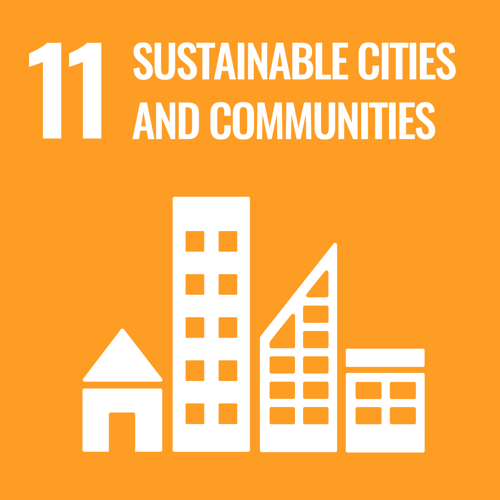
SDG 11: Sustainable cities and communities
Community facilities
- 5 Library locations open to the community
- Art Gallery boasting the largest collection in the Sunshine Coast Region
Sustainable transportation
- 4 electric vehicle charging stations across UniSC campus
- 20+ bike storage areas across all campuses
- Three free UniSC Express Shuttle services for staff and students
- Bus stops in walking distance of every campus
- Train station and cycleway across the street at UniSC Moreton Bay
- UniSC has adopted a new policy to purchase EV and hybrid fleet vehicles
Events
- Sustainability Week was held across UniSC campuses with engagement activities designed to provide students, staff and the community information on a range of sustainability issues
- Documentary screenings and panel discussions on issues such as sustainable fashion, food, conservation and climate change
- Market Day events
- Native tree and shrub planting
Research
- Bioclimatic and Sociotechnical Cities (BASC) Lab is focussed on urban design, planning, heat, urban vegetation, health and other issues to create sustainable communities and cities
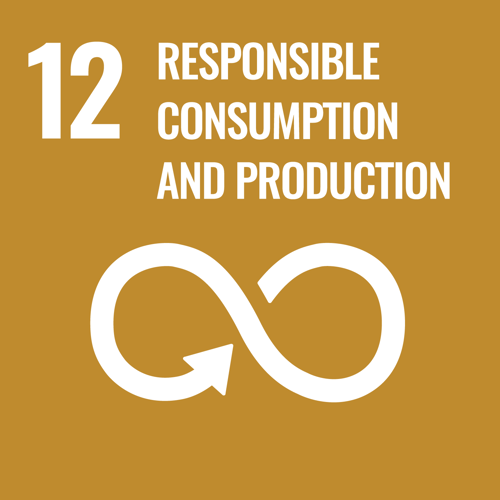
SDG 12: Responsible consumption and production
Circular economy
- 54% waste diverted from landfill through composting and recycling streams:
- Paper/Cardboard
- Comingled recycling
- eWaste
- Polystyrene
- Metal
- Clear soft plastics
- Batteries
- Lighting
- Over 5,500 containers recycled with 100% of funds earned through Containers for Change donated to charity
- Composting of organic waste through the University's on-site composting apparatus (OSCA) at UniSC Sunshine Coast
- 100% Carbon neutral A3 and A4 paper supplied for all departmental and School printing
Policies and plans
- UniSC has a Sustainability Operational Policy and an Operational Waste Management Plan to develop circular economy principles and guide the measurement of waste sent to landfill, recycled and composted
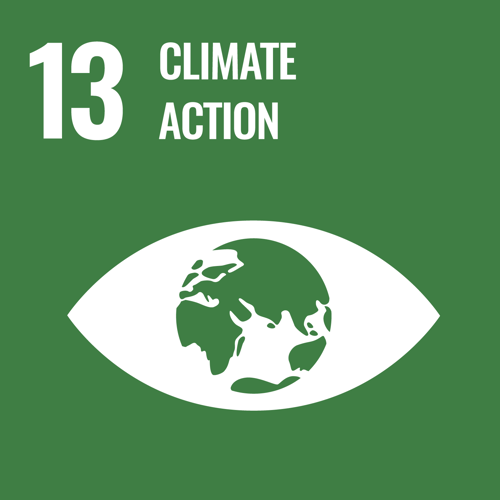
SDG 13: Climate action
Emissions avoided
- 2,658 tonnes CO2-e (emissions) avoided through the use of on-site solar energy and chilled water at UniSC Sunshine Coast
Planning
- UniSC’s Carbon Management Plan (CMP) is being revised to include an expanded Scope 3 boundary
Engagement
- UniSC researchers study whether the science on coastal climate change risks, impacts, adaptation and impact reduction should be paused so action can be taken; findings have been promoted:
- News articles
- Podcasts
- Radio
- Online
- WION Climate Summit presentation
- Active member of Noosa Biosphere, UNESCO Biosphere Reserve
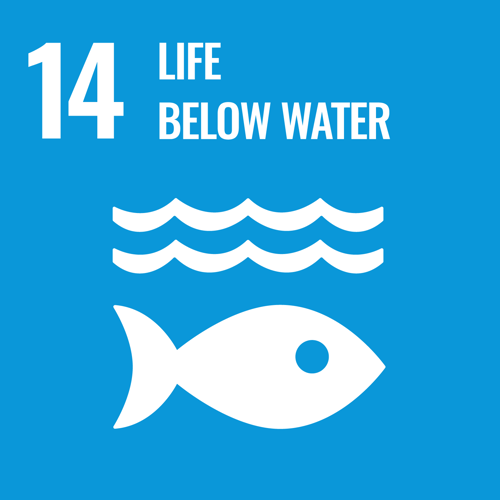
SDG 14: Life below water
- More than 1,600 people enrolled in the UniSC Life Below Water conservation short course
- UniSC raised over $320,000 for three projects, including Sea Turtle conservation (prevent soft shell disease) through Giving Day
- UniSC flood historian, Dr Margaret Cook, won the Australian and Aotearoa New Zealand Environmental History Network's inaugural Public Environmental History Prize for identifying the emotional dimensions of river and flood management
- Two UniSC authors, Professor David Schoeman and Professor Patrick Nunn, contributed to the latest UN IPCC WGII report which documents thousand of impacts to ocean and coastal ecosystems caused by global warming, sea-level rise and ocean acidification
- The Campus Master Plan (CMP) has been updated to expand the University's commitment to harvesting rain, storm and waste water, enhancing irrigation systems managing floods and protecting existing drains across campus
- UniSC, as part of its Water Refill Initiative that flows from the CMP, is committed to reducing plastic waste on its campuses by banning the sale of single-use plastic water bottles
- The Waste Management Technical Operations Guideline and Hazardous Waste Disposal Process are designed to prevent hazardous waste and pollutants from entering the environment at University campuses and study sites and sets out guidance for management of spills
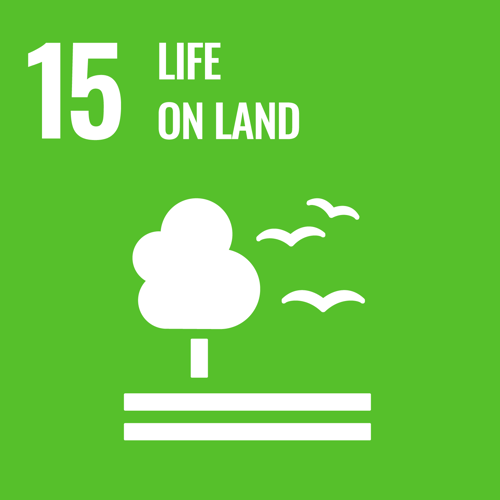
SDG 15: Life on land
Campus setting
- Over 70 nest boxes across UniSC Sunshine Coast providing homes for possums, gliders and a range of birds
- 200+ trees planted
- UniSC Sunshine Coast campus is a Land for Wildlife member with its flora and fauna reserve and works directly to maintain and extend existing ecosystems and the biodiversity of flora and fauna that ecosystem supports
Policy
- UniSC has a Catering Operational Policy that preferences food that is sustainably sourced, farmed or caught
Research and collaboration
- UniSC authors released articles on forestry:
- 15 essential advances for science to help restore the world's forested landscapes
- Monitoring the recovery of tree diversity in Costa Rica
- Applying a community capacity curve framework to reforestation in the Philippines
- Assessing landscape restoration potential
- Studying how certified community forests impact restoration and human wellbeing in Tanzania
- UniSC is collaborating with EOMAP, UQ and Noosa Council on a project to combine satellite imagery of QLD's sea floor and drone surveys of its shore and dunes to map out the Sunshine Coast's shifting sands
- UniSC representatives collaborated with Sunshine Coast Council local government and other members of the local community to develop a draft of the Sippy Downs University Town Master Plan, which maintains shared land ecosystems and built infrastructure between Sippy Downs and UniSC Sunshine Coast

SDG 16: Peace, justice and strong institutions
Representation
- Representation on the University Council from students, academic and professional staff
- A Student Ombudsman is in place to ensure students receive fair and equitable treatment across all aspects of the student experience, particularly regarding the resolution of grievances and complaints
Policy and reporting
- UniSC has a Freedom of Speech and Academic Freedom governing policy
- UniSC publishes an annual report with financial data
Engagement
- UniSC representatives have been serving on the Sunshine Coast 2032 community lead group to provide advice to local, regional and state government and 2032 Olympic organisers regarding shared land and facilities that can be used for the Brisbane Olympic Games
- UniSC academics and researchers released articles in The Conversation around a range of issues:
- Anti-police sentiment
- 'Spycraft'
- Corporate use of facial recognition software
- Virtual child sexual abuse
- Governmental information sharing regarding natural hazards
